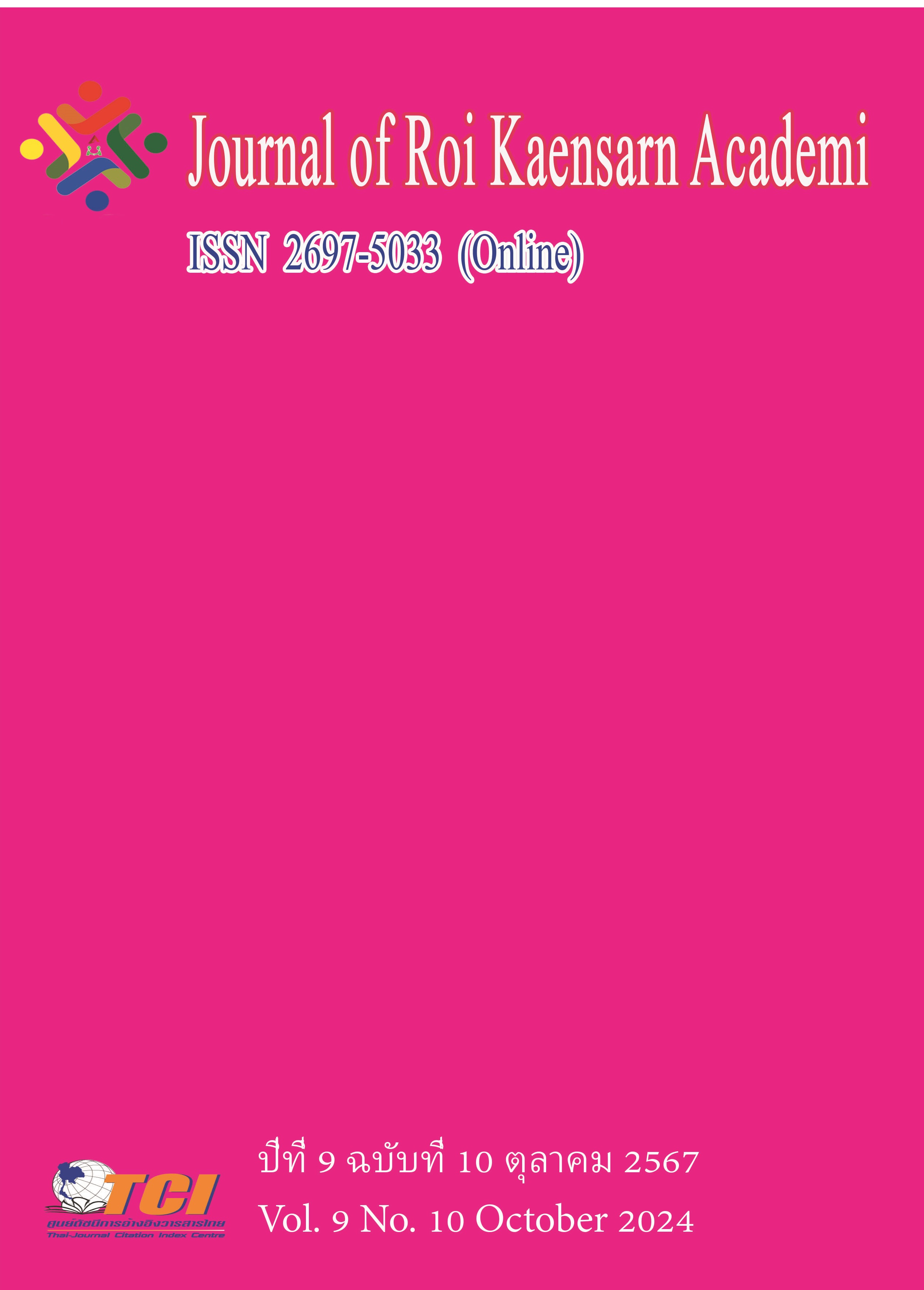The Exploring Motivative Dynamics in English Language Learning Among University Students in Thailand’s Deep South through L2MSS Framework
Main Article Content
บทคัดย่อ
This study investigates the motivational factors influencing English language learning among university students in Thailand’s politically volatile southern border provinces, employing Zoltán Dörnyei’s L2 Motivational Self System (L2MSS). This framework encompasses three key constructs: the Ideal L2 Self, the Ought-to L2 Self, and the L2 Learning Experience. Data were collected through in-depth interviews with students from Yala, Narathiwat, and Pattani to analyze how these motivational components impact their English proficiency.
Results indicate that the Ideal L2 Self is a pivotal motivator, with students linking future success in English to career and personal life goals, often inspired by successful role models. The Ought-to L2 Self is influenced by societal and environmental expectations from family, religion, educational systems, and cultural contexts, affecting motivation variably across individuals. The L2 Learning Experience, including well-resourced classrooms, proficient teachers, modern teaching materials, and educational technology, supports motivational pathways for enhancing English skills.
This research enriches the understanding of motivational factors in English language learning and provides insights specific to the unique cultural, social, and political contexts of the southern border area. The findings offer implications for policy formulation aimed at improving English language education and motivation in this region and potentially across Thailand.
Article Details
เอกสารอ้างอิง
Assalihee, M., & Boonsuk, Y. (2022). Factors obstructing English teaching effectiveness: Teacher voices from Thailand’s Deep South. IAFOR Journal of Education, 10(1), 156-172.
Atkinson, D., & Murray, M. (1987). Improving Interrater Reliability.
Bryman, A. (2016). Social research methods. Oxford University Press.
Chanyoo, N. (2022). The comparison of motivating factors for taking English and other foreign languages among Thai college students. Theory and Practice in Language Studies, 12(6), 1087-1097.
Creswell, J. W., & Creswell, J. D. (2017). Research design: Qualitative, quantitative, and mixed methods approach. Sage Publications.
Csizér, K., & Dörnyei, Z. (2005). Language learners’ motivational profiles and their motivated learning behavior. Language learning, 55(4), 613-659.
Dörnyei, Z. (2005). The psychology of the language learner: Individual differences in second language acquisition. Lawrence Erlbaum Associates Publishers.
Dörnyei, Z. (2009). The L2 Motivational Self System. In Z. Dörnyei & E. Ushioda (Eds.), Motivation, Language Identity, and the L2 Self (pp. 9-42). Multilingual Matters.
Dörnyei, Z. (2009). The psychology of second language acquisition. Oxford University Press.
Dörnyei, Z., & Csizér, K. (2005). Teaching and researching motivation. Routledge.
Dörnyei, Z., & Ushioda, E. (2011). Teaching and Researching Motivation. Pearson Education.
Guest, G., Bunce, A., & Johnson, L. (2006). How many interviews are enough? An experiment with data saturation and variability. Field methods, 18(1), 59-82.
Kanoksilapatham, B. (2023). Thai university students’ self-regulated learning in an online learning environment. 3L: Language, Linguistics, and Literature, The Southeast Asian Journal of English Language Studies, 29(2), 119-132. ISSN 0128-5157
Kim, T.-Y., & Kim, Y.-K. (2014). A new look at the cognitive model of motivation for second language learning: The role of learners’ own language learning aptitude. Studies in Second Language Learning and Teaching, 4(2), 207-229.
Liu, M. (2019). The Ought-to L2 Self and motivation in second foreign language learning among Chinese university students. Frontiers in Psychology, 10, Article 2318.
MacIntyre, P. D., & Gardner, R. C. (1994). The subtle effects of language anxiety on cognitive processing in the second language. Language Learning, 44(2), 283-305.
Papi, M. (2010). The L2 motivational self-system, L2 anxiety, and motivated behavior: A structural equation modeling approach. System, 38(3), 467-479.
Patricia, G. C. (2022). A Causal Relationship Model of English Language Learning Strategies and Achievement Motivation among Physical Education Students at Thailand National Sports University. https://doi.org/10.31219/osf.io/zx9qc
Ryan, R. M., & Deci, E. L. (2020). Intrinsic and extrinsic motivation from a self-determination theory perspective: Definitions, theory, practices, and future directions. Contemporary educational psychology, 61, 101860.
Ryan, R. M., & Deci, E. L. (2020). Intrinsic and extrinsic motivation from a self-determination theory perspective: Definitions, theory, practices, and future directions. Contemporary educational psychology, 61, 101860.
Srisopha, K. (2022). A causal relationship model of English language learning strategies and achievement motivation among physical education students at Thailand National Sports University. Education Quarterly Reviews, 5(2).
Syed, Z. (2003). TESOL in the Gulf: The sociocultural context of English language teaching in the Gulf. TESOL quarterly, 37(2), 337-341.
Taguchi, T., Magid, M., & Papi, M. (2009). The L2 motivational self-system among Japanese, Chinese, and Iranian learners of English: A comparative study. Motivation, language identity and the L2 self, 36, 66-97.
Taguchi, T., Magid, M., & Papi, M. (2009). The L2 motivational self-system among Japanese, Chinese, and Iranian learners of English: A comparative study. Motivation, language identity and the L2 self, 36, 66-97.
Takahashi, T. (2018). Motivation of students for learning English in Rwandan schools. Issues in Educational Research, 28(1), 168-186.
Takashi, T. (2021). The Origin of Minority Problem: Thailand. In Minority Issues in Asia: Diverse Perspectives (pp. 51-69). https://doi.org/10.1007/978-981-15-9616-2_4
Thanikun, C. (2021). Social Transformation and the (Un) Changing Violent Conflict in the Deep South of Thailand. In Changing Dynamics of Conflict in Southern Thailand (pp. 363-376).
Thorsen, C., Henry, A., & Cliffordson, C. (2017). The case of a missing person? The current L2 self and the L2 motivational self-system. International Journal of Bilingual Education and Bilingualism.
Ushioda, E. (2012). Motivation: L2 learning as a special case? In Psychology for language learning (pp. 58-73). Palgrave Macmillan, London.
Wen, W. P., & Clément, R. (2003). A Chinese conceptualization of willingness to communicate in ESL. Language Culture and Curriculum, 16(1), 18-38.
Yossatorn, Y., Binali, T., Weng, C., & Awuor, N. O. (2023). Relating university students’ online self-regulated English learning to motivational beliefs: a structural equation modelling analysis. Behaviour & Information Technology, 42(7), 888–903.
Zhao, X., Xiao, W., & Zhang, J. (2022). L2 motivational self-system, international posture, and the sustainable development of L2 proficiency in the COVID-19 era: a case of English majors in China. Sustainability, 14(13), 8087.

